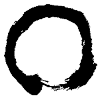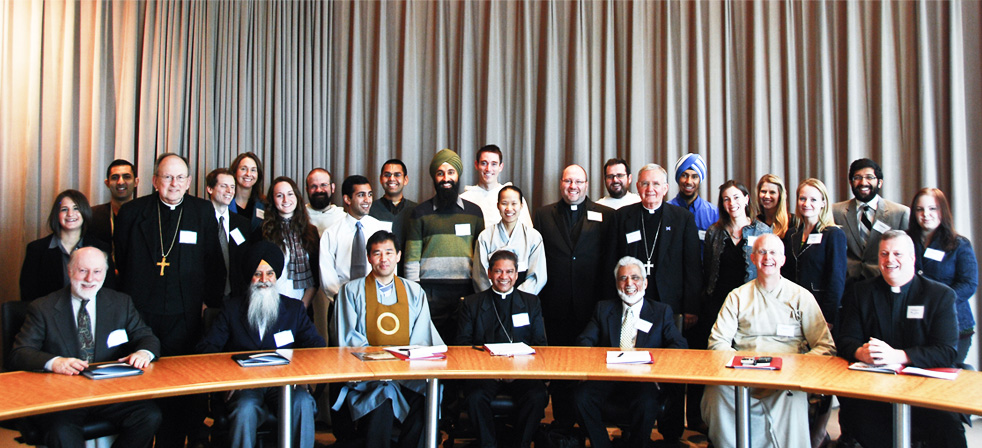 Won Buddhism
Won Buddhism
Buddhism (佛敎) is the pathway to enlightenment. The word Won (圓) literally means ‘circle’ and symbolizes ultimate reality or our true nature. Therefore, the name Won Buddhism means the path to the enlightenment to our true nature.
Sotaesan, the founding master of Won Buddhism, realized supreme enlightenment in 1916 in Korea at the age of 26, after many years of searching for the truth and doing many ascetic practices. Master Sotaesan, after his enlightenment, observed the modern world where the human spirit had become weakened and enslaved by the rapidly developing material civilization. He therefore established a communal life setting with the founding motto, “With this Great Unfolding of material civilization, Let there be a Great Unfolding of spirituality.” This was the beginning of Won Buddhism.
Won Buddhism, as a reformed Buddhism and as a new religion, transforms the traditional Buddhist teaching. It makes the Buddhadharma more practical, more relevant, and more suitable to contemporary society so that the many people in the secular world can utilize it to enrich their actual lives.
 Won Buddhism, although embracing the Buddha’s teachings, revitalizes and modernizes traditional Buddhadharma in order to realize Sotaesan’s ideal: ‘Buddhadharma is daily life and daily life is Buddhadharma.’ According to Sotaesan, a living religion is one where spiritual practice is not separate from real life. To one student’s question, “What is the great way?” The Master replied, “What all people can follow is the great way. What only a few can follow is the small way.”
Won Buddhism, although embracing the Buddha’s teachings, revitalizes and modernizes traditional Buddhadharma in order to realize Sotaesan’s ideal: ‘Buddhadharma is daily life and daily life is Buddhadharma.’ According to Sotaesan, a living religion is one where spiritual practice is not separate from real life. To one student’s question, “What is the great way?” The Master replied, “What all people can follow is the great way. What only a few can follow is the small way.”
The goal of Won Buddhism is to lead all sentient beings to be free from suffering and distress. Won Buddhism embraces and accepts those of other faiths, and seeks to work together to create One World Community. With its open teaching, Won Buddhism has worked to realize a vision of a United Religions (UR), a counterpart of the United Nations (UN), because in these modern times all problems are fundamentally world problems and the cooperation of all religions and religious leaders is vital to build a lasting peace in the world.
Won Buddhism leads a movement for inter-religious dialogue and cooperation. Won Buddhists have participated in and promoted local, national, regional and international inter-religious dialogue since 1970 and have been actively engaged in the World Conference of Religions for Peace (WCRP), the World Fellowship of Buddhists (WFB), and the Asian Conference of Religions for Peace (ACRP).

Master Chongsan said, “The metaphysical reality of Won is the realm which cannot be described in words or forms, however, the physical aspects of Won are expressed in all beings of the universe. Thus, Won is the origin of all dharmas and the reality of all existences. Therefore, all the religious teachings, though they are expressed in various ways, are nothing but the truth of Won and there is no other Dharma.”
The guest asked, “If Won has such a great and perfect meaning, wouldn’t it be better to call your order ‘The Way of Won’ (Wondo, 圓道) or ‘The Religion of Won’ (Wonkyo, 圓敎) for the purpose of including all religious teachings in it? Although Buddhism is an old and great religion, the world still suspects that it has only a partial truth. Why don’t you think this matter over?”
Master Chongsan said, “The term Buddha means enlightenment or mind. The truth of Won may be so perfect as to include all Dharmas; however, it will be just an empty principle if there is no mind which is enlightened to it. Thus, the two terms, Won-Bul (圓佛), are inseparably related to each other, referring to an identical truth. The fundamental doctrine of the Buddha’s teaching was not originally partial; however, because of the different systems of propagation it has been misunderstood as partial. Hence, a renovation of the propagation system will clearly reveal the true face of the Buddha dharma to the world.